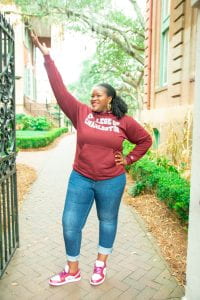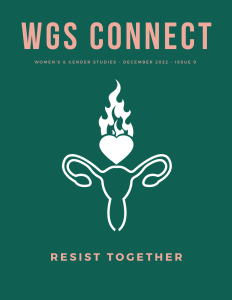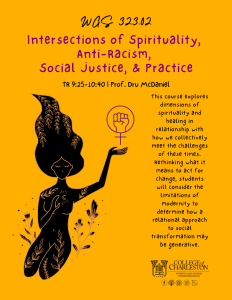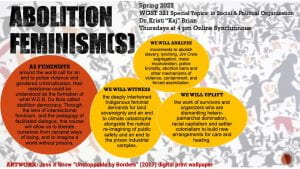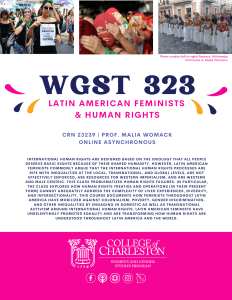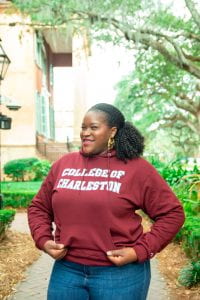
Women’s and Gender Studies program at the College of Charleston announces its inaugural Community Leader-in-Residence
Charleston, SC – The College of Charleston’s Women’s and Gender Studies (WGS) program is proud to announce its first Community Leader-in-Residence, an initiative to bridge the College and the greater Charleston community in partnership to advance equity and justice. The WGS program is honored to host Tamika Gadsden as its inaugural Community Leader-in-Residence (CLR), serving in this capacity from January through August 2023.
The Community Leader-in-Residence will support students in applying keystone concepts of the WGS discipline: intersectionality, power, resistance, equity, justice, and advocacy, in their understandings of and skills in areas such as community organizing, political and policy intervention strategies, needs assessment, effective communication, evidence-based advocacy, inclusive strategizing/planning for community action, and grant writing. Finally, the CLR will help to advance the College’s 2020-2030 Strategic Plan in the area of Academic Distinction through innovations for sustainable solutions, commitments to diversity, equity, inclusion and justice, and impactful, strategic partnerships.
This initiative is the culmination of years of critical dreaming by WGS students, faculty, and administrators. In 2018, Women’s and Gender Studies students were central to forming I-CAN, the Intersectional Cougar Action Network, which quickly became a voice for intersectional feminist student activism. Following the 2020 protests against the murders of George Floyd, Breonna Taylor and many other Black and Brown individuals as well as sustained national attention to a racial justice movement, the WGS program formed the Student Advisory Committee (SAC) with intentional representation of students with AALANA (African American, Latinx, Asian and Native American) and other underrepresented identities. The SAC provides WGS students with opportunities for shared governance in the program. One of the Committee’s first actions was to detail the Community Leader-in-Residence proposed by I-CAN, as a strategy for developing student leadership capacities.
Embracing the idea, over the last two years the WGS Executive Faculty Committee developed the position description, taking care to ensure that the role is reciprocal and sustainable, and that the initiative honored students’ original vision while advancing WGS program priorities.
Tamika “Mika” Gadsden is a Charleston-based content creator, media entrepreneur and organizer. The daughter of Jim Crow refugees, Mika has built a significant digital presence as an activist and has built Charleston Activist Network Media, LLC. – an outgrowth of her work as the South Carolina leader of the state’s Women’s March organization. Mika also hosts Mic’d Up, a daily livestream show on Twitch.
While the role is continually being defined in collaboration with Gadsden, the WGS program invites student scholar-activist-leaders in WGS and at the College broadly to join faculty leaders in welcoming Gadsden and ensuring her time as the Community Leader-in-Residence is generative and transformative.
The Women’s and Gender Studies program explores the intersections of gender, class, race, ethnicity, age, religion, ability, and sexuality within different cultures, contexts and time periods, offering a Bachelor of Arts major and minor at the College of Charleston, introducing students to relevant social issues while fostering critical thinking, strong verbal, writing and research skills, encouraging social advocacy, emphasizing diversity, and giving invaluable, tangible experience.
For more information, quotes, photos, or to schedule an interview, please email Kris De Welde, Director of WGS at deweldek@cofc.edu.
